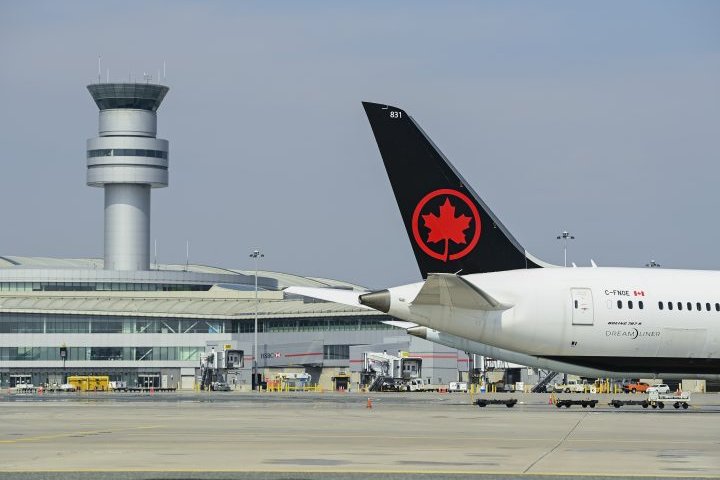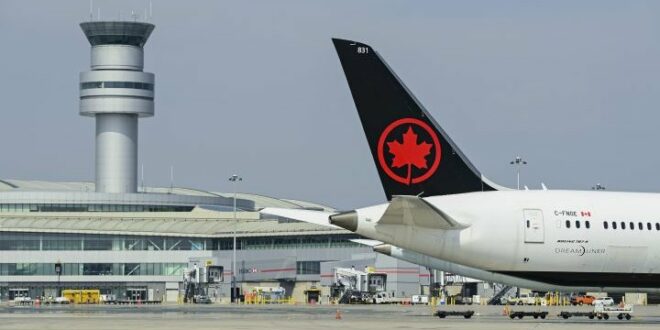
Tourism and business groups are calling on the federal government to remove the pre-departure COVID-19 testing requirement for fully vaccinated international travellers, arguing that the measure is no longer necessary at this point in the pandemic.
Representatives from several organizations held a press conference in Toronto Thursday morning, saying that removing the restriction is necessary to allow the tourism and business sectors to fully recover.
“Businesses are becoming more confident that we are past the need to rely on restrictive measures like lockdowns to manage the virus,” said Lindsay Broadhead, the senior vice-president of communications and public affairs at the Toronto Region Board of Trade.
“To realize the full opportunity, we must, where it is safe to do so, remove restrictions that are no longer needed. That’s why today, I join my friends from the Global Business Travel Association, American Express Global Business Travel, and Destination Toronto, to call on the federal government to help revise its travel policies so that Toronto’s tourism sector can get back on its feet.”
The groups want to see the federal government remove the pre-departure testing requirement for fully vaccinated travellers no later than April 1, which is when the regulations are set to be updated.
Currently, international travellers are required to provide proof of a negative COVID-19 test before their arrival to Canada. It can be a molecular test completed within 72 hours of a flight’s departure time or the traveller’s arrival to Canada by land or sea.
Travellers were also recently given the option of providing proof of a negative antigen test completed no more than one day before arrival to Canada.
If a person has tested positive for COVID-19 on a molecular test, proof of that test can also be used to enter the country no less than 10 days or more than 180 days before entering Canada.
“Travel and tourism are massive economic drivers in our province and many businesses in Toronto and across the country depend on international travellers, particularly business travellers,” Broadhead said.
“Many countries have recognized the time to remove COVID-19 restrictions for fully vaccinated travellers. To set the stage for a complete recovery, Canada needs to join jurisdictions like the United Kingdom and Switzerland in removing restrictions that are no longer needed.”
Broadhead noted that Canada is one of “the most vaccinated places in the world” and said that Canadians have supported “common-sense government measures” throughout the pandemic.
“The time has now come to reward those who have made many sacrifices to get where we are today,” she said.
Patrick Doyle, the vice-president and general manager at American Express Global Business Travel, said the recent move by the federal government to allow rapid tests as an option for travellers was “progress,” but not enough.
“The switch to antigen testing has not had an impact on business travel bookings. In 2022, there is no scientific reason that justifies travel being singled out as the only activity requiring testing,” he said.
The Canadian Travel and Tourism Roundtable said business travel in Canada in 2019 contributed $40 billion annually to the country’s economy and supported more than 600,000 jobs.
The organization said business travel today is at around 30 per cent of pre-pandemic levels.
“The current travel measures in place are a barrier to travel. These measures simply do not permit flexibility or schedule changes,” said Nancy Tudorache from the Global Business Travel Association.
“They add tremendous uncertainty, they hurt corporate productivity, create financial burdens for businesses looking to send their employees into Canada or returning back to Canada.”
A spokesperson for Health Canada and the Public Health Agency of Canada responded to the calls for the removal of the testing requirement in a statement sent to Global News Thursday afternoon.
“Like every other element of the Government of Canada’s COVID-19 response, border measures are informed by available data, operational considerations, scientific evidence and monitoring of the epidemiological situation both in Canada and internationally,” Tammy Jarbeau said.
She noted that on Feb. 28, the government allowed the option of rapid antigen testing “to lessen travel impediments.”
“As vaccination levels and healthcare system capacity improve, the Government of Canada will continue to consider further easing of measures at the borders—and when to lift or adjust those measures—to keep people in Canada safe,” Jarbeau said.
[ad_2]You can read more of the news on source
 Travelsmart
Travelsmart



